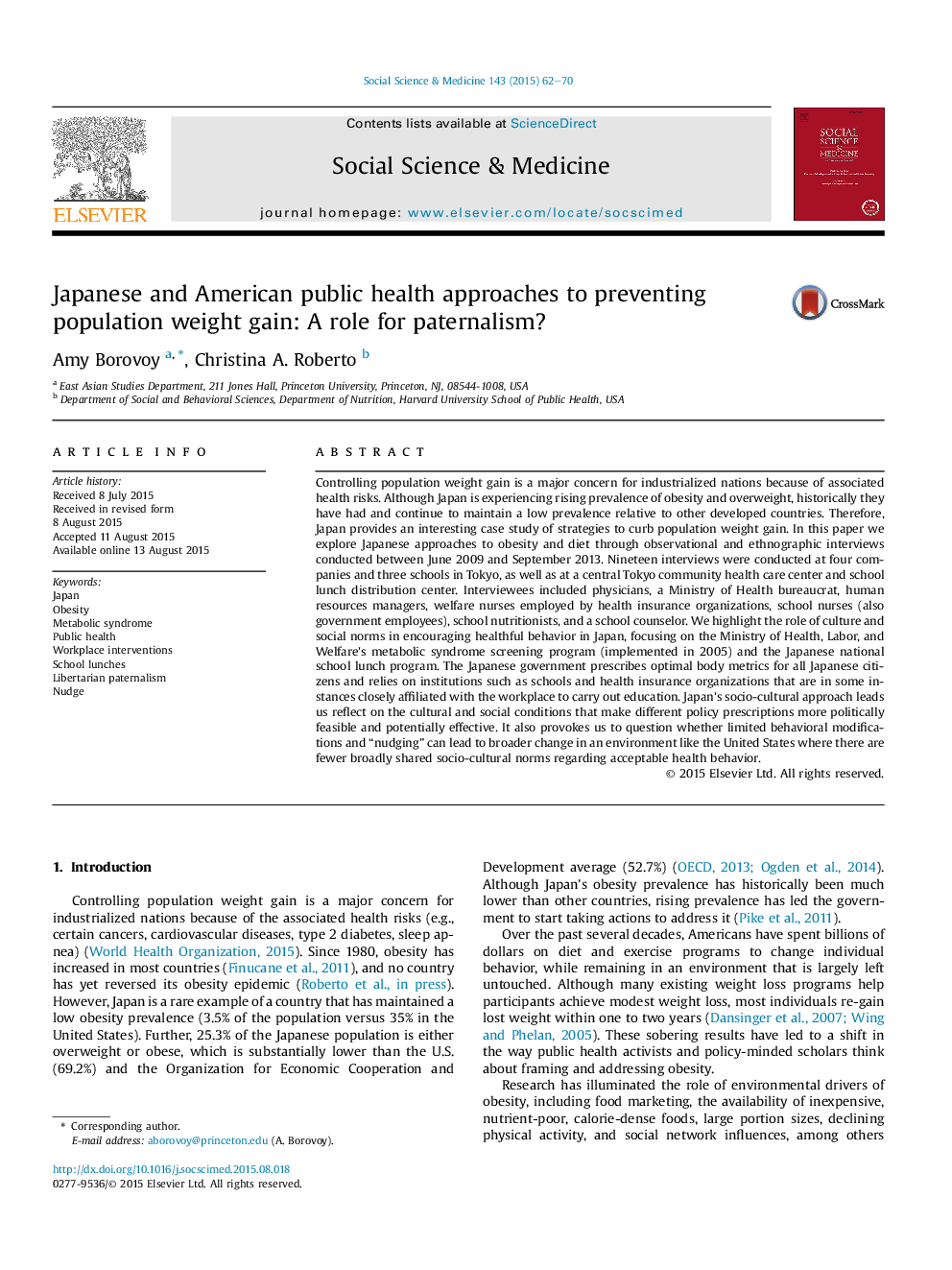| کد مقاله | کد نشریه | سال انتشار | مقاله انگلیسی | نسخه تمام متن |
|---|---|---|---|---|
| 7331767 | 1476026 | 2015 | 9 صفحه PDF | دانلود رایگان |
عنوان انگلیسی مقاله ISI
Japanese and American public health approaches to preventing population weight gain: A role for paternalism?
ترجمه فارسی عنوان
رویکردهای بهداشت عمومی ژاپن و آمریکا برای جلوگیری از افزایش وزن جمعیت: نقش برای پدرانگی چیست؟
دانلود مقاله + سفارش ترجمه
دانلود مقاله ISI انگلیسی
رایگان برای ایرانیان
کلمات کلیدی
ژاپن، چاقی، سندرم متابولیک، سلامت عمومی، مداخلات در محل کار، ناهار مدرسه، پدرخوانده آزادیخواه بریدن
موضوعات مرتبط
علوم پزشکی و سلامت
پزشکی و دندانپزشکی
سیاست های بهداشت و سلامت عمومی
چکیده انگلیسی
Controlling population weight gain is a major concern for industrialized nations because of associated health risks. Although Japan is experiencing rising prevalence of obesity and overweight, historically they have had and continue to maintain a low prevalence relative to other developed countries. Therefore, Japan provides an interesting case study of strategies to curb population weight gain. In this paper we explore Japanese approaches to obesity and diet through observational and ethnographic interviews conducted between June 2009 and September 2013. Nineteen interviews were conducted at four companies and three schools in Tokyo, as well as at a central Tokyo community health care center and school lunch distribution center. Interviewees included physicians, a Ministry of Health bureaucrat, human resources managers, welfare nurses employed by health insurance organizations, school nurses (also government employees), school nutritionists, and a school counselor. We highlight the role of culture and social norms in encouraging healthful behavior in Japan, focusing on the Ministry of Health, Labor, and Welfare's metabolic syndrome screening program (implemented in 2005) and the Japanese national school lunch program. The Japanese government prescribes optimal body metrics for all Japanese citizens and relies on institutions such as schools and health insurance organizations that are in some instances closely affiliated with the workplace to carry out education. Japan's socio-cultural approach leads us reflect on the cultural and social conditions that make different policy prescriptions more politically feasible and potentially effective. It also provokes us to question whether limited behavioral modifications and “nudging” can lead to broader change in an environment like the United States where there are fewer broadly shared socio-cultural norms regarding acceptable health behavior.
ناشر
Database: Elsevier - ScienceDirect (ساینس دایرکت)
Journal: Social Science & Medicine - Volume 143, October 2015, Pages 62-70
Journal: Social Science & Medicine - Volume 143, October 2015, Pages 62-70
نویسندگان
Amy Borovoy, Christina A. Roberto,
